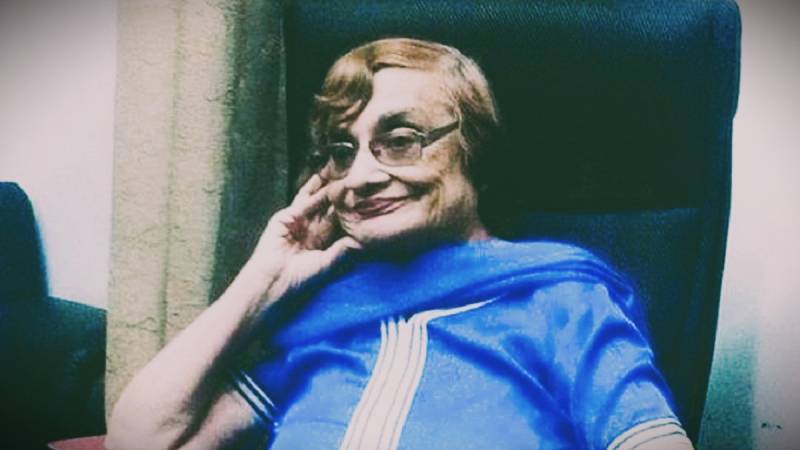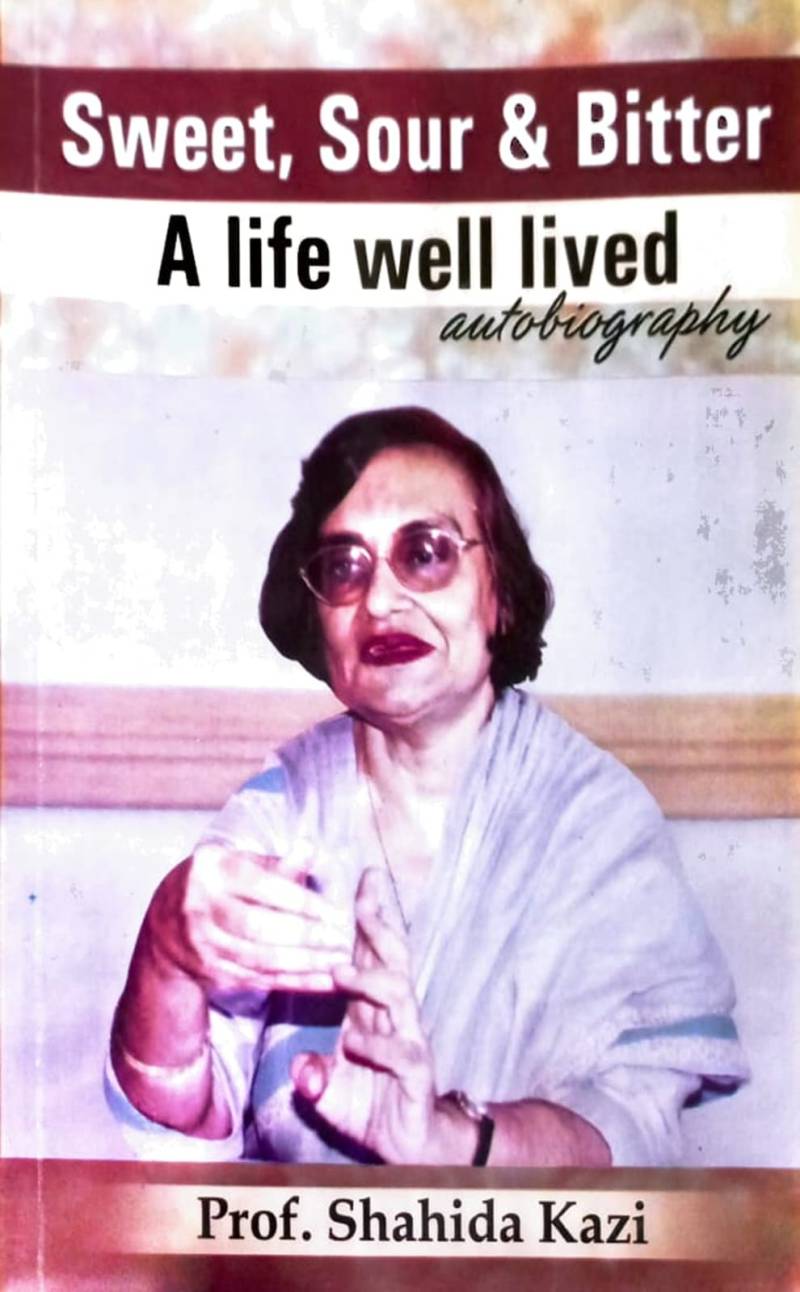
It had been a while since I wrote about Professor Shahida Kazi. But this time, it was different. This time, as I wrote about my interactions with her over the years and what she meant to me, there was a sudden flood of emotions. My association with her lasted over three decades, beginning as a student, then transforming into a colleague and enduring as a friend and mentor. Shahida Kazi, Pakistan's first female journalist and a host of firsts that usually come with such titles, breathed her last at the age of 79 in her Karachi residence on October 28.
My lifelong connection of learning, growth, and joy with Ma'am Shahida Kazi began in the fall of 1993. I had just joined the Mass Communication Department at the University of Karachi as an Honours student. At the time, the department was striving for excellence, setting a benchmark by attracting students with the highest merit, fostering competition with limited seats, and nurturing an environment of learning with a dynamic faculty. For someone aspiring to pursue a career in journalism and media, the department was considered a promising place for the youth.
Ma’am Shahida Kazi, as I was introduced to her, was serving as an assistant professor. She had a spacious room which served as her office. On my first day in university, I hesitantly approached her for some information about my courses. Donning her signature red lipstick, she welcomed me with a lively voice. Later, this room transformed into a hub for all of her students to have heated discussions and interactive sessions, delving into the depths of religion and politics, culture, literature, media, art, and society. In time, her office came to be known as "Hyde Park", where every student got a chance to speak one's heart out fearlessly.
As a teacher, her Pakistan Studies classes used to be the most fun. She would introduce students to the untold aspects of our history and some bits which could not make it into the official textbooks. As a journalist, her focus was always on ensuring that her students were constantly updated. It is no surprise that she made it mandatory for her students to come prepared to class: a thorough reading of the day's newspapers and a finger on the pulse of current affairs were a must.
As an individual, Ma'am Shahida Kazi referred to herself in her memoir as "a humanist, a socialist, a Sufi, a secular liberal and a feminist". She was indeed all of them, and above all, a woman of substance and a trailblazer who lived life on her terms.
Ma'am Shahida Kazi inspired a generation of students by challenging the stereotypes our society sets for women. She chose to become a trendsetter in every field she entered. This began when she became the first and only female student to be enrolled in the Masters of Arts in Journalism programme at the University of Karachi in 1963. She justified her decision by finishing at the top of her class and winning the first gold medal to be given out by the varsity. The medals were dedicated to the memory of the journalists killed in the Cairo air crash of 1965.
After completing her degree, she went on to make a lot of 'firsts', which opened the door for Pakistani women in journalism. She had the honour of being the first female reporter associated with any English newspaper in Pakistan after securing her first formal job at the Dawn newspaper in Karachi. Later, when she joined the Asian Television Service - a subsidiary of the state-run Pakistan Television (PTV) that was created with the launch of the first television station in Karachi in 1968 - she became the first female news producer and editor to be associated with PTV.
In the 1980s, she left her illustrious career in mainstream news and started her journey as a faculty member at the Department of Mass Communication at the invitation of the then-chairperson, Professor Zakariyya Sajid.
In her new role, she inspired and trained a generation of journalism and media students who went on to serve in senior positions in leading media houses and universities in Pakistan and abroad.
She also played a vital role in expanding the journalism programme at the University of Karachi from a two-year MA degree into a four-year BA-MA Mass Communication programme where students could get hands-on experience. Later, she headed the Department of Mass Communication as its first female chairperson for several years.
After retirement, she worked with several private universities in senior management positions and as a faculty, including Jinnah University for Women and the Institute of Business Management.

As has been often witnessed in Pakistan's media industry where journalists find themselves wittingly or unwittingly dragged into politics, Ma'am Shahida Kazi stayed out of it. During her career, she refused lucrative advances from various political parties. She would explain to those making the overtures that she was far too straightforward and too honest to make it in Pakistan's political setup.
An avid reader, a keen learner, a movie buff, and a 'Barfi' (a sweetmeat) lover, Madam Shahida Kazi was a simple woman and a private person. She believed in mentorship. This meant that she often developed life-long associations with her students. Her signature red lipstick, energetic demeanour, lively voice, and friendly 'yaar', with which she addressed both her friends and former students, distinguished her from conventional teachers.
She belonged to a noble 'Kazi' family and led a humble life. She married a man of her choice for love, hence their class difference had no impact on her choice. This did not mean she did not have bitter experiences, her marital life disintegrated in divorce following a long and abusive relationship.
But it did not change her approach to people. She never discriminated against anyone based on their social status.
What was unique about Ma’am Shahida Kazi were her vivid insights and sheer belief in the sixth sense and the metaphysical. In her words: "She developed a strong bent towards Sufism and mysticism, which helped her become more tolerant, modest and contended."
Ma’am Shahida Kazi deserves to be celebrated as a brave woman who spent the last decade of her life in solitude at her apartment in Karachi. She hardly complained about anything or anyone and always seemed to be grateful and positive towards life. Her morning muses on her Facebook page gave hope and motivation to her friends and followers as she believed in its spirit.
Being a humble person, she considers herself a tiny speck of dust in the vastness of the universe. As she wrote in her autobiography, 'Sweet, Sour and Bitter - A life well lived': "People call me a role model, a trendsetter, an inspiration to others. I rather consider myself as nothing but lucky. I am grateful that I made history as I lived through the most happening eras of Pakistan. My life was full of twists and turns like a novel, so I don’t know what will happen in the end, but I am fully contended that I lived a happy and productive life, which is all that matters."

